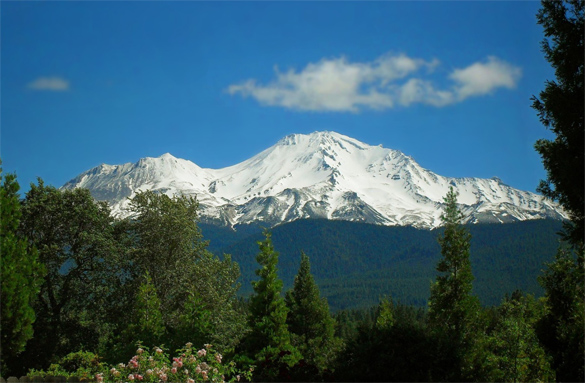
Living (and loving) Life
Question from Amanda: This morning’s view of the snowcapped mountains through my kitchen window got me to thinking about something.
I’ve always known that the higher up you go in elevation the cooler it gets, but I don’t know why. Can you explain it?
Rick’s answer: Amanda, there are actually several reasons why temperature drops as elevation increases. I could try to explain them but the following quotes from a couple of experts do a much better job than I could ever do…
The scientists at NASA give a short explanation of the primary reason why temps drop as elevation increases on this page:
“Higher elevations are cooler than lower elevations because of adiabatic heating. When a parcel of air moves from a low elevation to a high elevation, it expands because it is under less pressure. It has less weight pressing down on it from the air above it. As the air expands, its temperature drops.“
Michael Tinnesand, associate director for academic programs at the American Chemical Society, shares the following reasons via this page on the Scientific American website:
“The basic answer is that the farther away you get from the earth, the thinner the atmosphere gets. The total heat content of a system is directly related to the amount of matter present, so it is cooler at higher elevations.
The heating of the earth itself also plays a role. The planet is warmed by incoming solar energy. Some of this heat bounces off the atmosphere and never reaches the lower atmosphere, and some is re-radiated back to space. In addition, the atmosphere acts like a greenhouse to reflect some of the heat back toward the earth’s surface. At higher altitudes it is relatively harder to retain this energy as more heat is lost to space.“
And finally, the short video below explains why several layers of the upper atmosphere are actually warmer than the temps we experience down here (at or near the earth’s surface).
Note: You can watch the video at full screen by clicking the little “square” icon in the lower-right corner of the video after it begins playing.
I hope this helps, Amanda. Thanks for asking such a great question!